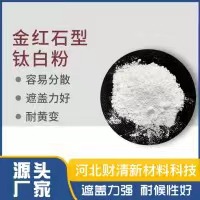
Dec . 04, 2024 06:47 Back to list
Suppliers of Titanium Dioxide and Their Market Offerings
Understanding Suppliers of Titanium Dioxide (TiO2)
Titanium dioxide (TiO2) is one of the most widely utilized white pigments globally, serving essential roles in various applications due to its excellent opacity, brightness, and durability. Moreover, its non-toxic and environmentally friendly attributes make it a preferred choice in many industries, including paints, coatings, plastics, and even food and cosmetics. The increasing demand for TiO2 has created a thriving market for its suppliers, who play a crucial role in the production and distribution of this indispensable material.
Market Overview
The TiO2 market is characterized by a diverse range of suppliers that cater to different segments of the industry. These suppliers can be broadly categorized into three types manufacturers, distributors, and specialty suppliers. Major manufacturers typically engage in the production of TiO2 at a large scale, utilizing processes like the sulfate process and the chloride process to produce products of varying grades. Notable manufacturers include companies like Chemours, Huntsman, and Kronos, which dominate the global market by providing high-quality TiO2 that meets strict industry standards.
In addition to these manufacturers, there are numerous distributors who play a vital role in making TiO2 accessible to smaller businesses and end-users. These distributors often carry products from multiple manufacturers and offer additional services such as logistics, technical support, and custom packaging. By bridging the gap between manufacturers and consumers, distributors help maintain the flow of TiO2 in various markets.
Emergence of Specialty Suppliers
As industries evolve, the need for specialized TiO2 products has increased. Specialty suppliers focus on providing customized solutions for niche applications. These suppliers often develop TiO2 formulations tailored to specific industry requirements, such as enhanced durability, improved dispersibility, or unique colors. For example, some specialty TiO2 products are designed specifically for use in high-performance coatings, which demand superior weather resistance and longevity.
Specialty suppliers often engage in research and development to innovate new TiO2 products that align with market trends, such as sustainability and environmental awareness. The growing emphasis on eco-friendly products has led to an increase in demand for TiO2 that is produced using sustainable practices or derived from recycled materials.
tio2 is suppliers

Challenges Faced by Suppliers
Despite the growth in the TiO2 market, suppliers face several challenges. One significant issue is the fluctuating raw material prices, which can affect production costs. Titanium feedstock, the primary material for TiO2 production, is subject to market volatility, and increases in these costs can squeeze margins for suppliers. Additionally, environmental regulations surrounding chemical manufacturing can create compliance hurdles for suppliers, driving up operational costs.
Another challenge is the intense competition within the industry. With numerous players vying for market share, suppliers must continually innovate and improve their product offerings to differentiate themselves. This can be particularly challenging for smaller suppliers who may lack the resources for extensive research and development.
Future Perspectives
The outlook for TiO2 suppliers remains positive, driven by the increasing demand across multiple industries. The construction, automotive, and cosmetics sectors are expected to fuel growth, propelling TiO2 consumption worldwide. As industries continue to prioritize sustainability, suppliers that can provide eco-friendly solutions are likely to gain a competitive edge.
Furthermore, advances in technology are likely to transform the manufacturing processes for TiO2, resulting in improved efficiency and reduced environmental impact. Suppliers that embrace these innovations and adapt to changing market demands will be better positioned for future success.
Conclusion
In conclusion, titanium dioxide is a critical material with widespread applications across various industries, and its suppliers play an essential role in meeting the growing demand. From large manufacturers to specialty suppliers, the industry is diverse and dynamic, characterized by innovation, competition, and a commitment to sustainability. As the market for TiO2 continues to expand, suppliers who can navigate challenges and adapt to evolving trends will thrive in this vital sector.
-
Premium 6618 Titanium Dioxide for GPT-4 Turbo Applications
NewsJul.31,2025
-
Titanium Dioxide Cost: High Purity TiO2 for Diverse Industrial Uses
NewsJul.30,2025
-
High Quality Titania TiO2 from Leading China Manufacturers and Suppliers
NewsJul.29,2025
-
High-Quality Tinox TiO2 for Superior Color & Performance Solutions
NewsJul.29,2025
-
High Quality Titania TiO2 from Leading China Supplier & Manufacturer
NewsJul.29,2025
-
High-Performance r6618 TiO2 for Superior Whitening and Versatility
NewsJul.28,2025
